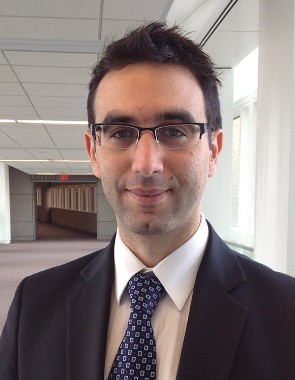User login
American Neurological Association (ANA): Annual Meeting 2013
Immunotherapy showed promise in predicting autoimmune-related epilepsy
Drug refractory epileptic seizures that respond to immunotherapy may have an underlying autoimmune-related cause, according to data presented at this year’s annual meeting of the American Neurological Association.
In a review of 29 patients with intractable, autoimmune-related epileptic seizures, researchers at the Mayo Clinic in Rochester, Minn., found that when given a 6-12 week therapeutic trial of either intravenous methylprednisolone (IVMP), intravenous immunoglobulin (IVIG), or both, 18 patients (62%) showed marked improvement, including complete cessation of seizures in 10 patients.
To determine if immunotherapy could be used to help diagnose and manage cases of autoimmune-related epilepsy not caused by limbic encephalitis or other multifocal paraneoplastic disorders, presenter Dr. Michel Toledano and his associates reviewed the cases of 12 patients who had drug-resistant seizures exclusively and 17 who had drug-resistant seizures as their chief complaint.
The cases were chosen on the basis of clinical presentation, imaging, detected neural antibodies, inflammatory cerebral spinal fluid, or other characteristics suggesting inflammation. Patient response to the immunotherapy trial was evaluated according to whether or not there was a reduction in seizure frequency and severity of 50% or more.
Across both groups, of the 18 who responded to the therapy, 10 became completely seizure-free, and 15 (52%) improved with either IVMP or IVIG; 43% of those who did not respond to the first drug showed a response when given the second.
Patients who responded positively to immunotherapy were found to be more likely than those with no response to have antibodies for neuronal plasma membrane antigens (78% vs. 9%; P = .001). In addition, 12 patients were seropositive for voltage-gated potassium channel-complex antibodies.
In all, 83% of all patients who showed improvement did so within 4 weeks of the initiation of therapy. The researchers found that after 6 months, in 13 of the 18 who responded to immunotherapy and who were switched to long-term oral immunosuppressive therapy, the response was sustained in 11 patients (85%).
"Although not diagnostic, response to an immunotherapy trial lends supports to the diagnosis of autoimmune epilepsy in the right clinical setting and, as suggested in our study, justifies initiation of long-term immunosuppression," wrote Dr. Toledano in an e-mail.
Although the study is small, Dr. Toledano said that the data are intended to "provide clinicians with a logical management and treatment algorithm that has some basis on available evidence, but there is no doubt that a larger prospective study is needed."
The Mayo Clinic funded the study. Dr. Toledano and his colleagues had no relevant disclosures.
Drug refractory epileptic seizures that respond to immunotherapy may have an underlying autoimmune-related cause, according to data presented at this year’s annual meeting of the American Neurological Association.
In a review of 29 patients with intractable, autoimmune-related epileptic seizures, researchers at the Mayo Clinic in Rochester, Minn., found that when given a 6-12 week therapeutic trial of either intravenous methylprednisolone (IVMP), intravenous immunoglobulin (IVIG), or both, 18 patients (62%) showed marked improvement, including complete cessation of seizures in 10 patients.
To determine if immunotherapy could be used to help diagnose and manage cases of autoimmune-related epilepsy not caused by limbic encephalitis or other multifocal paraneoplastic disorders, presenter Dr. Michel Toledano and his associates reviewed the cases of 12 patients who had drug-resistant seizures exclusively and 17 who had drug-resistant seizures as their chief complaint.
The cases were chosen on the basis of clinical presentation, imaging, detected neural antibodies, inflammatory cerebral spinal fluid, or other characteristics suggesting inflammation. Patient response to the immunotherapy trial was evaluated according to whether or not there was a reduction in seizure frequency and severity of 50% or more.
Across both groups, of the 18 who responded to the therapy, 10 became completely seizure-free, and 15 (52%) improved with either IVMP or IVIG; 43% of those who did not respond to the first drug showed a response when given the second.
Patients who responded positively to immunotherapy were found to be more likely than those with no response to have antibodies for neuronal plasma membrane antigens (78% vs. 9%; P = .001). In addition, 12 patients were seropositive for voltage-gated potassium channel-complex antibodies.
In all, 83% of all patients who showed improvement did so within 4 weeks of the initiation of therapy. The researchers found that after 6 months, in 13 of the 18 who responded to immunotherapy and who were switched to long-term oral immunosuppressive therapy, the response was sustained in 11 patients (85%).
"Although not diagnostic, response to an immunotherapy trial lends supports to the diagnosis of autoimmune epilepsy in the right clinical setting and, as suggested in our study, justifies initiation of long-term immunosuppression," wrote Dr. Toledano in an e-mail.
Although the study is small, Dr. Toledano said that the data are intended to "provide clinicians with a logical management and treatment algorithm that has some basis on available evidence, but there is no doubt that a larger prospective study is needed."
The Mayo Clinic funded the study. Dr. Toledano and his colleagues had no relevant disclosures.
Drug refractory epileptic seizures that respond to immunotherapy may have an underlying autoimmune-related cause, according to data presented at this year’s annual meeting of the American Neurological Association.
In a review of 29 patients with intractable, autoimmune-related epileptic seizures, researchers at the Mayo Clinic in Rochester, Minn., found that when given a 6-12 week therapeutic trial of either intravenous methylprednisolone (IVMP), intravenous immunoglobulin (IVIG), or both, 18 patients (62%) showed marked improvement, including complete cessation of seizures in 10 patients.
To determine if immunotherapy could be used to help diagnose and manage cases of autoimmune-related epilepsy not caused by limbic encephalitis or other multifocal paraneoplastic disorders, presenter Dr. Michel Toledano and his associates reviewed the cases of 12 patients who had drug-resistant seizures exclusively and 17 who had drug-resistant seizures as their chief complaint.
The cases were chosen on the basis of clinical presentation, imaging, detected neural antibodies, inflammatory cerebral spinal fluid, or other characteristics suggesting inflammation. Patient response to the immunotherapy trial was evaluated according to whether or not there was a reduction in seizure frequency and severity of 50% or more.
Across both groups, of the 18 who responded to the therapy, 10 became completely seizure-free, and 15 (52%) improved with either IVMP or IVIG; 43% of those who did not respond to the first drug showed a response when given the second.
Patients who responded positively to immunotherapy were found to be more likely than those with no response to have antibodies for neuronal plasma membrane antigens (78% vs. 9%; P = .001). In addition, 12 patients were seropositive for voltage-gated potassium channel-complex antibodies.
In all, 83% of all patients who showed improvement did so within 4 weeks of the initiation of therapy. The researchers found that after 6 months, in 13 of the 18 who responded to immunotherapy and who were switched to long-term oral immunosuppressive therapy, the response was sustained in 11 patients (85%).
"Although not diagnostic, response to an immunotherapy trial lends supports to the diagnosis of autoimmune epilepsy in the right clinical setting and, as suggested in our study, justifies initiation of long-term immunosuppression," wrote Dr. Toledano in an e-mail.
Although the study is small, Dr. Toledano said that the data are intended to "provide clinicians with a logical management and treatment algorithm that has some basis on available evidence, but there is no doubt that a larger prospective study is needed."
The Mayo Clinic funded the study. Dr. Toledano and his colleagues had no relevant disclosures.
FROM THE ANA ANNUAL MEETING
Major finding: After 6-12 weeks of immunotherapy, 62% of patients (n = 18) with antiepileptic drug refractory seizures showed improvement.
Data source: A small, retrospective study of 29 patients with either antiepileptic drug refractory seizures, or seizures as their primary presentation.
Disclosures: The Mayo Clinic funded the study. Dr. Toledano and his colleagues had no relevant disclosures.

